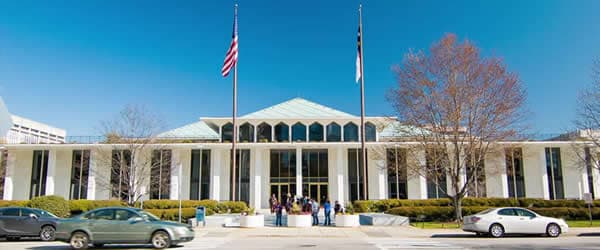
The N.C. General Assembly reached an agreement on the biennial state budget on Tuesday, June 20. While Gov. Roy Cooper has signaled he will likely veto the plan, Republican supermajorities in both the House and Senate could easily override that veto.
“The final budget released signals greater investment in and strong support for the University and furthers many of the goals of the UNC Strategic Plan — including accessibility, affordability and efficiency and student success,” said UNC President Margaret Spellings. “This is a good day for the University, and we thank the General Assembly for their leadership and support. We look forward to final approval of this budget later this week as we continue our work on behalf of the students, faculty, staff — and taxpayers — of North Carolina.”
UNC Charlotte Special Assistant to the Chancellor Betty Doster echoed Spellings’ comments. “We appreciate the General Assembly addressing UNC Charlotte’s top 2017 legislative priorities: funding enrollment growth that is particularly important to our fast-growing campus and salary increases for our talented and hard-working faculty and staff.”
Enrollment growth funding, UNC Charlotte’s top legislative priority for 2017, was fully funded. The budget includes $46.6 million for enrollment growth funding for the UNC system, with about $15 million for UNC Charlotte. The University remains the fastest-growing campus in the UNC system. More than 50 percent of the total growth in the UNC system since 2009 has occurred on the UNC Charlotte campus.
UNC Charlotte has experienced a 33 percent enrollment increase during the last decade and expects to enroll more than 29,000 students for the 2017-18 academic year. The funds within the budget will be used to hire talented faculty and staff and support critical programs and services that boost student success.
Staff salaries were another top legislative priority for UNC Charlotte. The budget includes a $1,000 across-the-board pay increase for state employees, three bonus days of vacation and a 1 percent cost of living adjustment for retirees. In addition, the budget calls for flexibility in allocating increases for exempt employees, with all other employees to receive $1,000 across-the-board increases. Increasing salaries for University employees is an important tool for retaining and recognizing excellent faculty and staff.
The budget also includes $1 million to the UNC system for the faculty recruitment and retention fund. Over the years, access to these funds have helped UNC Charlotte attract and retain more than 75 outstanding professors in a variety of fields.
Much needed repairs and renovations will be addressed with the roughly $50 million allocated to the UNC system. The Board of Governors will determine the final allocation to the campuses.
The budget also includes $1 million for the Research Opportunities Initiative – a UNC system competitive program that funded a data analytics program at UNC Charlotte.
Unfortunately, the carryforward authority was not expanded beyond the current 2.5 percent, despite the efforts by Reps. Dean Arp (’99), Jason Saine (’95) and Bill Brawley (‘78), it did not advance. Another measure, increasing the chancellors’ approval authority for small capital projects from $300,000 to $1 million was not approved. These common sense business practices would have allowed the University to more efficiently address campus repairs and upgrades.
“I want to thank the UNC Charlotte alumni, Board of Trustees, Foundation Board members and friends of the University who contacted legislators asking for their support of our campus,” said Doster.